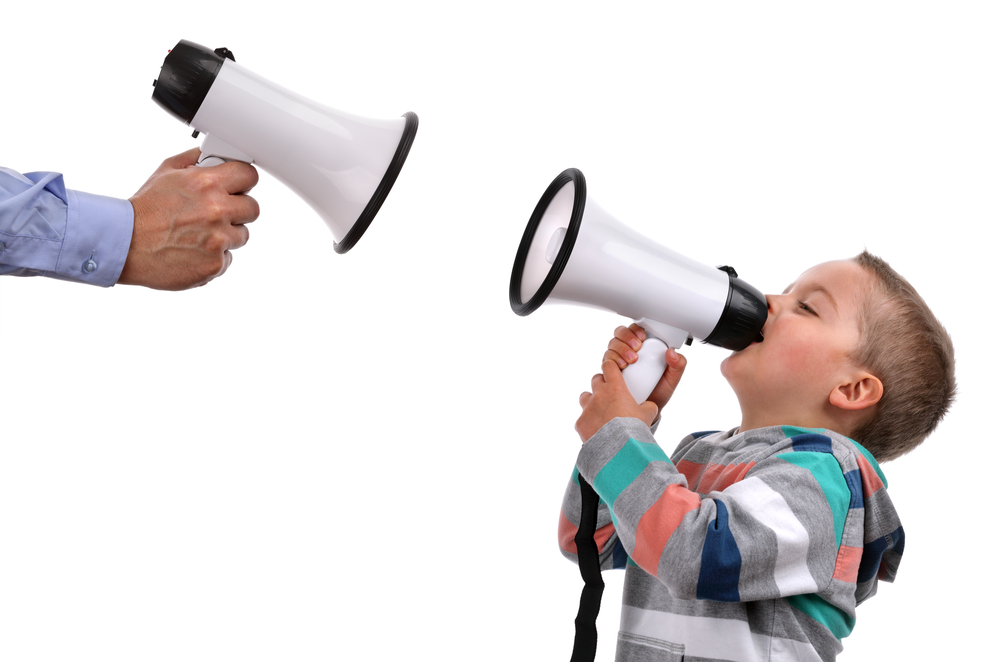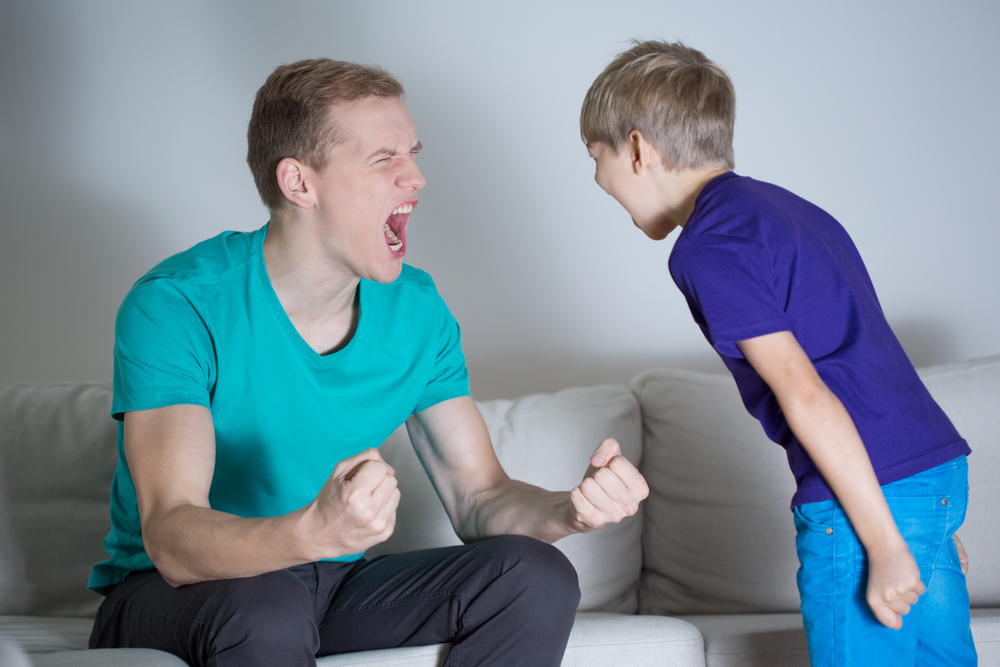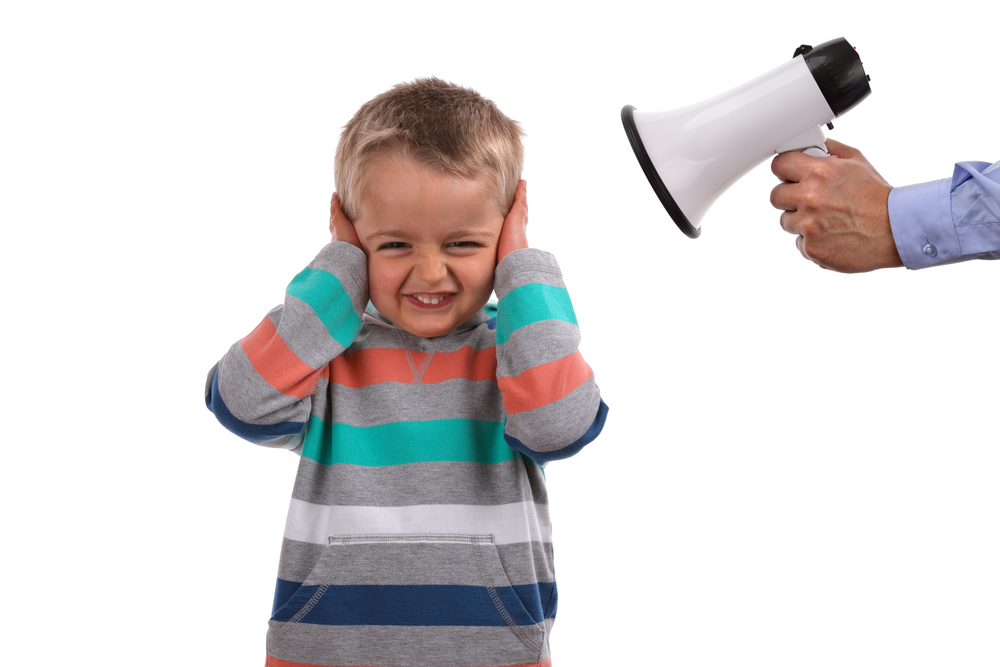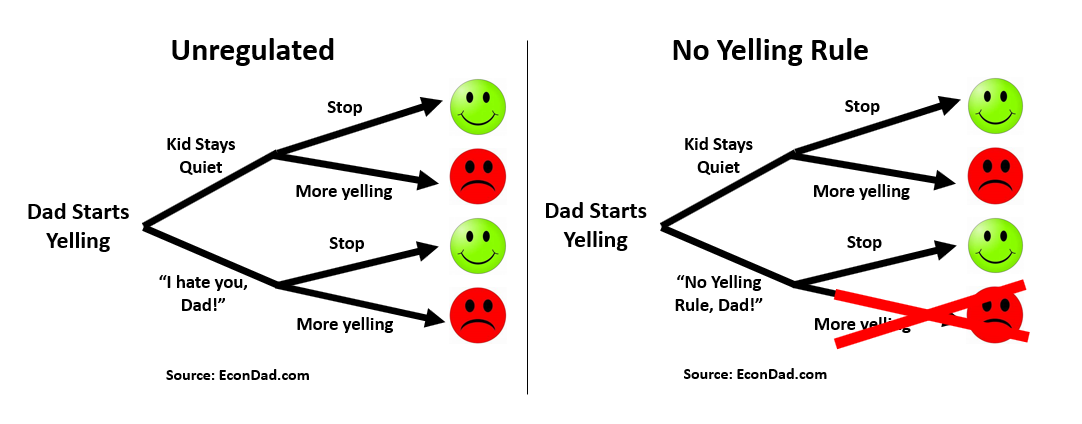As a parent, I sometimes lose control and yell at my kids (shocking, I know!). I’m not proud of it. In fact, I get a bit ashamed of it, especially when other parents hear me (like my wife). In the moment, the yelling always feels justified. But if I take a step back, repeated yelling probably isn’t good for my kids.
A friend of mine once had her child say to her: “Mommy, you’ve been very ‘yelly’ today.” Kids notice our yelling, and it affects them in a negative way.
It’s partly genetic: In our family, we call it the “McDuff temper.” It’s not a great quality, but it’s there, somewhere, in my DNA. It goes back as least as far as my grandfather, I’m told. It’s probably somewhere in the DNA of all Dads.
It’s also behavioral: When I’m stressed about something at work, I’m 5 times more likely to yell than when I’m stress-free. If I’m up against the clock at bedtime, I’m more likely to become unnecessarily impatient.
It’s also sociological: As leaders of the house, we feel like we should be the ones determining the rules, the flow, the behaviors of everybody else. When it doesn’t go our way, it can be irritating.
So how do we stop losing our temper and yelling at our kids when they upset us?
 One problem is when they start yelling back
One problem is when they start yelling back
The thing that’s been working best for me lately is the No Yelling Rule. I tell my kids that Dad has a “No Yelling Rule” and that they need to remind me of the rule whenever I start to yell. Here’s how it goes:
Me: Hey kid, can you get your pajamas on so we can read a book?
Child: But I’m *building* something.
Me: I know, it looks great, and we can continue that tomorrow. Let’s get locked and loaded for bedtime.
** cricket chirps, no movement from child **
Me: Hey, are you listening?
Child: I want Mom!
Me (starting to lose my patience): You better start getting dressed or I’m gonna lose it…!!
Child: Dad, No Yelling Rule!
Me: Oh right… Sorry bud.
There’s a constant tug of war between our emotional brain and our logical brain, our limbic system and our prefrontal cortex. Our logical brain knows that we shouldn’t yell, but our emotional brain can’t help it. We lose control when things are out of our control, which happens often with kids.
To be sure, yelling is probably justified sometimes. If we need to keep them safe — definitely justified. If we need to get their attention — maybe justified. If we’re losing out cool for no good reason — definitely not justified. If we can, we’re probably better off yelling a bit less.
For some reason, the No Yelling Rule helps my logical brain override my emotional brain. It lets me step outside of my emotions. It reminds me that I have rules as a parent, rules that I’ve agreed upon when I was (presumably) calm and clear-headed. The No Yelling Rule is kind of like a parenting “safe word,” a pre-agreed signal to back off. It’s the one thing my kids can say that, most of the time, snaps me out of my yelling right away.
Economically, what’s happening is that we pre-committing our responses. “I, Dad of the Household, Ruler of the World, pre-commit to stop yelling if you ask me to, no matter how upset I am.” By pre-committing, our kids know that if they call “No Yelling Rule!” that their odds of stopping it are very high, because the cost of more yelling is much higher when I’m breaking my pre-commitment promise.
In other words, the No Yelling Rule takes away our ability to make a game-time decision, when we’re heated in battle and overwhelmed with emotion. Kind of like Odysseus tying himself to the boat so he won’t be tempted by the Sirens. Or like tying ourselves up in a marriage.
Bonus points: Extra penalties for cursing. My kids get a $0.25 automatic deduction from their allowance every time they curse. But I find myself slipping up from time to time. So I implemented a $0.25 automatic debit to their allowance if I curse. It keeps me on track and in check.
Here’s an excerpt I wrote to the family in my 2017 Letter from Dad:
“As a Dad, one of the things I’ve been working on this year is controlling my temper. I’m trying to yell less and get less worked up. You probably don’t notice the improvement, and instead just remember the yelling. But I’m trying — I hope I don’t hurt your feelings too much. Or if I do, that you will forgive me, or at least also remember the love I showed. Being a father is more complex than I ever imagined, but also more rewarding. Also as a husband, I sometimes lose my temper and fail to show Mom how much I love her. But, I think (and hope!) that I tell her and all of you often enough that I love you. I hope that’s what you remember.”
I’m still working on keeping my cool. I’m doing pretty well most of the time, though still flipping out sometimes. But the No Yelling Rule helps.
Readers: I’d be delighted if you gave the No Yelling Rule a try. Did it work? How can it be improved?
 What do you mean? This *is* me keeping my cool.
What do you mean? This *is* me keeping my cool.
See: How To Win Any Negotiation With Your Child


Good one! One good thing about getting old children are not around all of the time. Really enjoyed the read, old memories.
Thanks! I’m guessing the “No Yelling Rule” for grandparents is more like “Give-the-child-back-to-the-parent Rule.”
Comment from a friend:
“This post reminded me of the same issue I had. I read ScreamFree Parenting (Screamfree Parenting, 10th Anniversary Revised Edition: How to Raise Amazing Adults by Learning to Pause More and React Less https://www.amazon.com/dp/0767927435/ref=cm_sw_r_cp_api_VJEYBbHQ9TNPB), and the big takeaway for me was the concept that when I am yelling, I am ultimately saying “call me down”. I realized that it wasn’t my kids job to calm me down, and that I shouldn’t let what they were doing bother me that much or have that much power over me anyways. With that said, the DNA still takes over sometimes still but I’m much better than before. Good stuff!”
From a AAA+ son-in-law
Hey thanks!!


